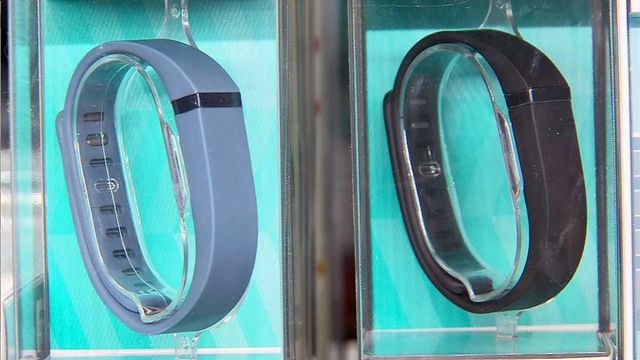New fitness trackers a step up from basic pedometers
Pedometers are an old style fitness tracker, but now more people are sporting wearable fitness tracking devices on their wrist.
Posted — UpdatedPedometers are an old style fitness tracker, but now more people are sporting wearable fitness tracking devices on their wrist.
Are they just a fashion trend, or do they really help motivate us to move?
The more information you have about your health status, the more you can do to maintain good health or improve on it. Dr. Daniel Neides from the Cleveland Clinic says that fitness trackers have the potential to give people the data to do just that.
"We're a goal-oriented society, and so, if we set a goal that we want 8,000 steps, or 10,000 steps a day, this is providing us with that level of feedback," Neides said.
Neides says that when it comes to trying to prevent or reverse chronic diseases, such as diabetes, folks should aim to get 10,000 steps per day.
Research that shows people with diabetes who maintain that basic activity level have better insulin sensitivity and lower body mass index than those who don't. The more steps you take, the more you cut the risk of disease.
Even if you don't have a chronic condition, a goal of 10,000 steps per day is a good way to cut the risk of developing other health problems.
Many jobs require a lot of time in an office chair, and that can make getting 10,000 steps more difficult, unless you apply a little creativity.
"Walk 5 minutes out of every hour," Neides said. "Get up, walk around, and then come back. We know now that sitting is going to be the new smoking, if you will, in terms of the impact that sitting has on chronic diseases."
Here's another idea to increase activity: Use part of your lunch break to get up and take a walk. It will also help you manage your stress level.
These fitness trackers can be very helpful, and they are becoming more and more advanced.
Many now link up with your smart phone to feed you more useful information. On a phone app linked with the fitness tracker, you can store information about what you eat every day, and the tracker figures out how many of those calories you are burning.
They have sensors to measure your heart rate and show you the next day how much deep sleep you received and how many times you woke up. The trackers could even show signs of sleep apnea, which, once treated, can dramatically improve your health.
These devices vary in cost depending on how much information you want: For $10 to $20, a fitness tracker can do a fine job of measuring how many steps you're getting each day, and many do much more than that.
This is a technology that puts valuable information at your finger tips, but it's only useful if you act on it to improve your diet and your physical activity.
• Credits
Copyright 2024 by Capitol Broadcasting Company. All rights reserved. This material may not be published, broadcast, rewritten or redistributed.





